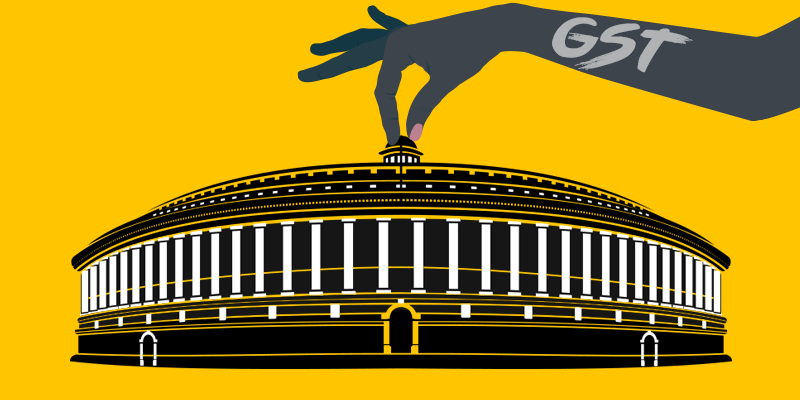
One Week Of Goods And Services Tax (GST): Loopholes And Defects In Its Implementation Found
It has been a week, GST Bill was put in action on July 1st of this year. This tax reform is so far one of the most intriguing steps towards the brighter future, besides demonetization. The idea of turning down the then existing tax amalgam was brought in first during the reign of former Prime Minister Atal Bihari Vajpayee.
However, after successfully rolling over through the dignitary houses: Lok Sabha, Rajya Sabha and President’s hands, GST was implemented with million hopes, on the top of it, the basic objective was to rope in more tax from the higher classes and less from the lower classes. With the epidemic increase in Entertainment taxes and luxurious aspects, the firm decrease in basic food needs and other facilities is observed.
Now, considering the valid calmness in the implementation, it was expected that the objective is rightfully paving its path, but what all happening at the lowest stages is something that must not happen.

As we are well aware of the concept that center has introduced a five tax slab system: 0%, 5%, 12%, 18% and 28%. Now, the legal norms and regulations from the so-called legislation failed to penetrate into the details of imposition. Pulling off the advantage of these factors, businesses are trying their best to shield consumers from paying heavy, ultimately aiming to withstand their business.
The intentions of the business people are simple: the more you purchase, heavier the tax will be. For example, if one has to pay 12% tax for the purchase of goods worth Rs 1000, the sellers are classifying it marking 5% tax to Rs 500 purchase, they’re doing this, on taking tax slabs into accounts.
If a sole percentage of tax is imposed, no trace of such issues could have been discovered.
Earlier, back in December banks and other authorities coped up with similar innovative ways to beat the difficulties faced by demonetization, it appears like GST is going to face the similar fate until government steps in and takes necessary actions.

On this subject, a prominent economist from Ernst and Young has opined: ‘having different tax rates for differently priced goods creates classification disputes and litigation’.
He then added that such diversity in taxation creates an inclination on part of the taxpayer to find ways of charging a lower rate. Meanwhile, a government official also added that this was not the intent of the tax regime and proper measures will be taken post the methodistical study.